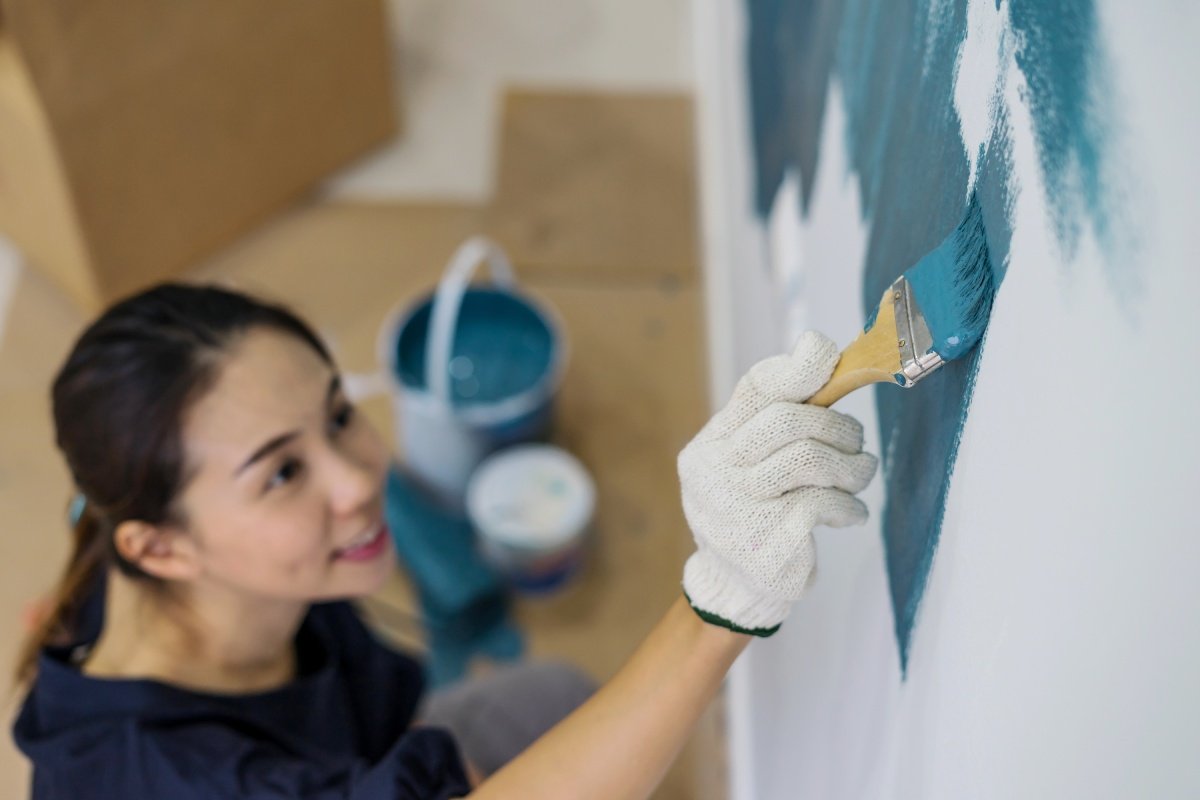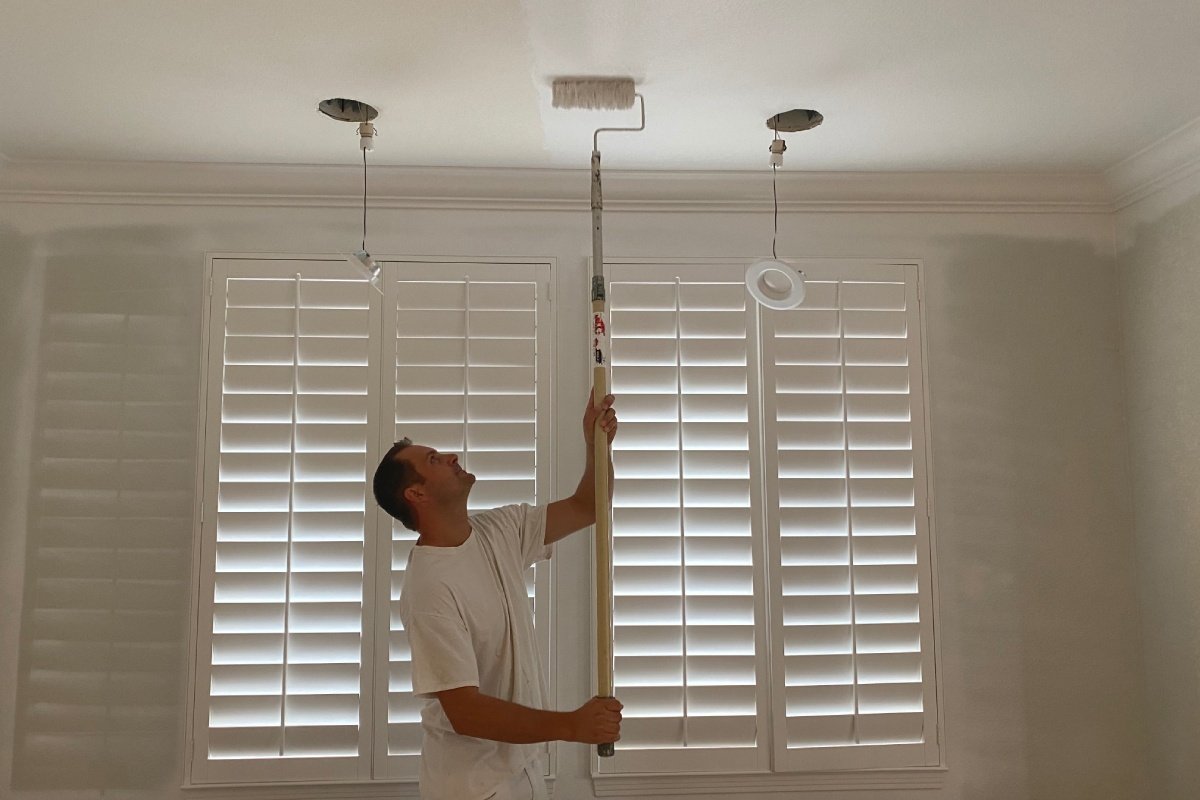What paint types are used on plantation shutters? Pros and Cons of water-based Vs. polyurethane-based paints
If you are thinking about having plantation shutters installed in your home, then you likely weren’t prepared to find yourself overwhelmed with so many different material options. Do you go for natural hardwood? PVC? Vinyl? Aluminium? The options are seemingly endless. But, the decision-making doesn’t stop there! Not only do you need to think about the material and the quality of manufacturing before making any commitments, but the type of finish on your plantation shutters before installation as well. For example: what are the pros and cons of water-based paint Vs. polyurethane-based paints?
In this article, we’re going to take a closer look at the two main paint choices used to finish PVC plantation shutters and also basswood plantation shutters which are water-based and polyurethane-based paints so that you can decide which is the best option for you. Aluminium plantation shutters can be finished in two packs or powder coated, which is another topic altogether.
Water-Based Paints
To be perfectly honest, when it comes to plantation shutters you’ll be hard-pressed to find a better option than water-based – particularly for interior use. In any case, let’s back that statement up with some facts:
Pros
Little to no VOCs: VOCs (volatile organic compounds) are a group of chemicals that are commonly found in building and maintaining homes. The problem with VOCs is that they can emit dangerous gases indoors, contaminating the air that we breathe and exposing our loved ones and ourselves to a variety of unnecessary health risks. The good news is that water-based paints have little to no VOCs present in them at all.
Better for your health: This distinct lack of VOC presence in water-based paint makes it significantly better for your health. Here’s a quick look at the short and long-term effects of VOC exposure:
Short term: eye, nose, and throat irritation, headaches, nausea, dizziness, deterioration of asthma symptoms.
Long term: increased risk of cancer, liver and kidney damage, and central nervous system damage.
Hypoallergenic: For those who have allergies, water-based paints are a no-brainer. For the sake of saving yourself some money on cheaper quality paint, it’s not worth putting the more vulnerable people in your home at risk of greater discomfort.
Eco-friendly: Water-based paints are the eco-friendliest alternative to covering your plantation shutters. This is because they cause a significant amount less harm than other hydrocarbon-based alternatives such as oil (or solvent) based paints.
UV stable/resistant: One of the biggest complaints with cheaper finishes on plantation shutters is the fact that they can fade, discolour, and turn yellow over time through prolonged UV exposure. Water-based paints, however, are UV-stable, resistant, and do not turn yellow – thus making them a far superior choice.
Fast drying: Water-based paints dry significantly faster than poly-based.
Bonus Pro – 7-year warranty against fading and discolouration: We are so confident in our water-based paint finishes for plantation shutters that we offer a standard 7-year warranty against fading and discolouration.
Cons
Less durable: As great as water-based paints are, they’re not perfect. Unfortunately, water-based paints tend to be less durable than oil or polyurethane-based paints, making them less suitable for outdoor applications (though not unfeasible).
Harder to apply: Applying water-based paint can be trickier, particularly if you are looking for a perfect, uniform finish. That said, with several coats and some determination, you shouldn’t run into any problems. Another alternative is to buy quality plantation shutters that have already been painted or hire a professional painter to apply the finish for you.
More expensive: Water-based paints aren’t the cheapest alternative, however, we do believe that the higher price tag is wholly justified – particularly at a time when eco-friendly products are so critical (not to mention protecting yours and your family’s health).
Polyurethane-Based Paints
Polyurethane-based paints do have several attractive benefits, making them a strong contender. Just be careful to weigh up the pros and cons closely and consider our recommendations against using them for indoor plantation shutters. Here’s everything you need to know:
Pros
Durability: For high-traffic areas, they do boast greater durability. However,, they are susceptible to discolouration and turning yellow when exposed to UV rays. So, while they may be more durable, the curb appeal of your home will slowly deteriorate and you’ll be required to repaint them regularly.
Ease of application: Oil/polyurethane-based paints are typically easier to apply, requiring fewer coats of paint during application.
Consistent aesthetic: Not only is this type of paint easier to apply to a variety of surfaces, but it’s self-levelling and boasts a consistent aesthetic.
Cheaper: Oil/polyurethane-based paints tend to be a cheaper alternative to water-based paint, but with good reason; with more VOCs and susceptibility to discolouration, it’s a lower-quality product.
Cons
Long curing time: Polyurethane-based paints, while being easier to apply, take longer to dry and cure. Additionally, they remain sticky to the touch until fully cured.
Bad odour: There is a sharp odour when poly-based paints are drying. This is due to the many chemicals they contain, including the VOCs.
High VOC content: Polyurethane-based paints are packed with dangerous VOCs which (as mentioned above) can be very harmful to your health. As such, they are unsuitable for indoor use – and definitely not recommended for such an application.
Discolouration: The VOCs, when exposed to prolonged UV rays, will not only emit dangerous gases, but the chemical reaction turns the paint yellow and causes it to fade. This requires regular re-applications.
Conclusion: The verdict
At Perth’s Boutique Plantation Shutters, we’re a little bit biased towards water-based paints. When polyurethane-based products are littered with dangerous VOCs, we can’t in good conscience recommend them over a far safer and healthier alternative: water-based.
Additionally, being an eco-friendly option makes it all the more attractive to us.
In any case, it’s entirely up to you. We hope that you have found this article helpful and welcome you to contact us should you be undecided and require further information.



